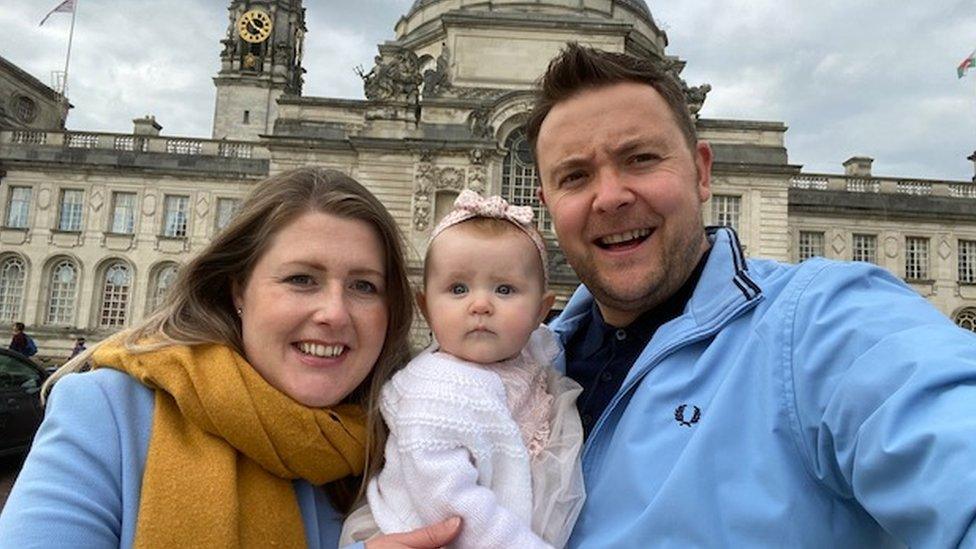Fear drove Covid hospital ban, says ex-chief nurse
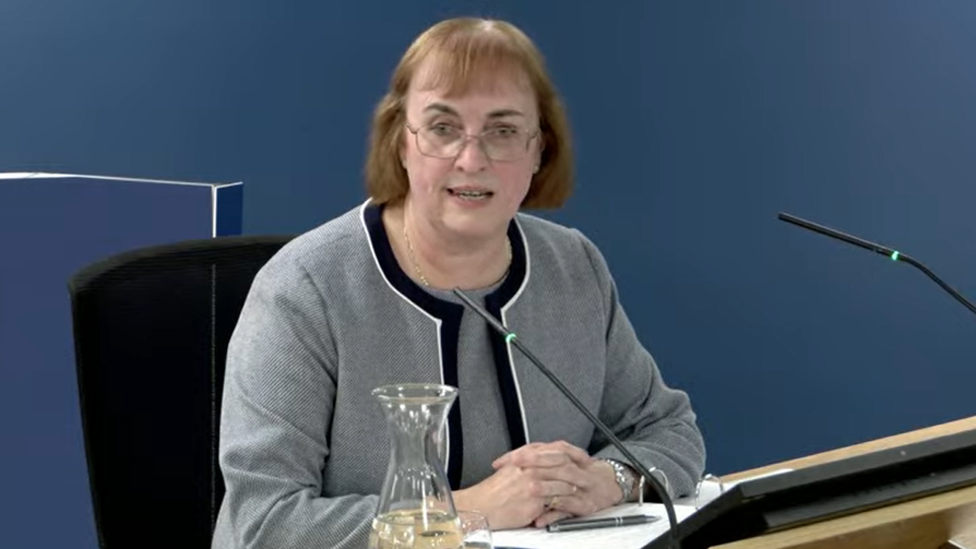
Prof Jean White advised Welsh ministers on nursing issues during the Covid pandemic
- Published
The former chief nursing officer for Wales has told the Covid inquiry she believes mistakes were made in banning hospital visits.
Prof Jean White, now retired, was the senior civil servant advising Welsh ministers on nursing issues during the pandemic.
But as she gave evidence to the London-based inquiry on Tuesday, she admitted she was not sure the balance was right when it came to restricting hospital visitors.
She said a "tremendous amount of fear" among staff had shaped the strict rules.
Regrets over the impact on families
Asked to reflect on how restrictions on visitors to hospitals developed, Prof White said: "I think I'd like us to be more permissive earlier on and find ways to do it.
"In neo-natal services, I think both parents should have been allowed to have been with their child, as a pair.
"In other areas, if someone has dementia, having someone they have some recognition of.
"So there's lots of folk we should have made more exceptions of earlier on. I wouldn't have done exactly the same thing all over again.
She added that hopefully next time "we'd have a vaccine earlier on so we'd be more confident in doing that".
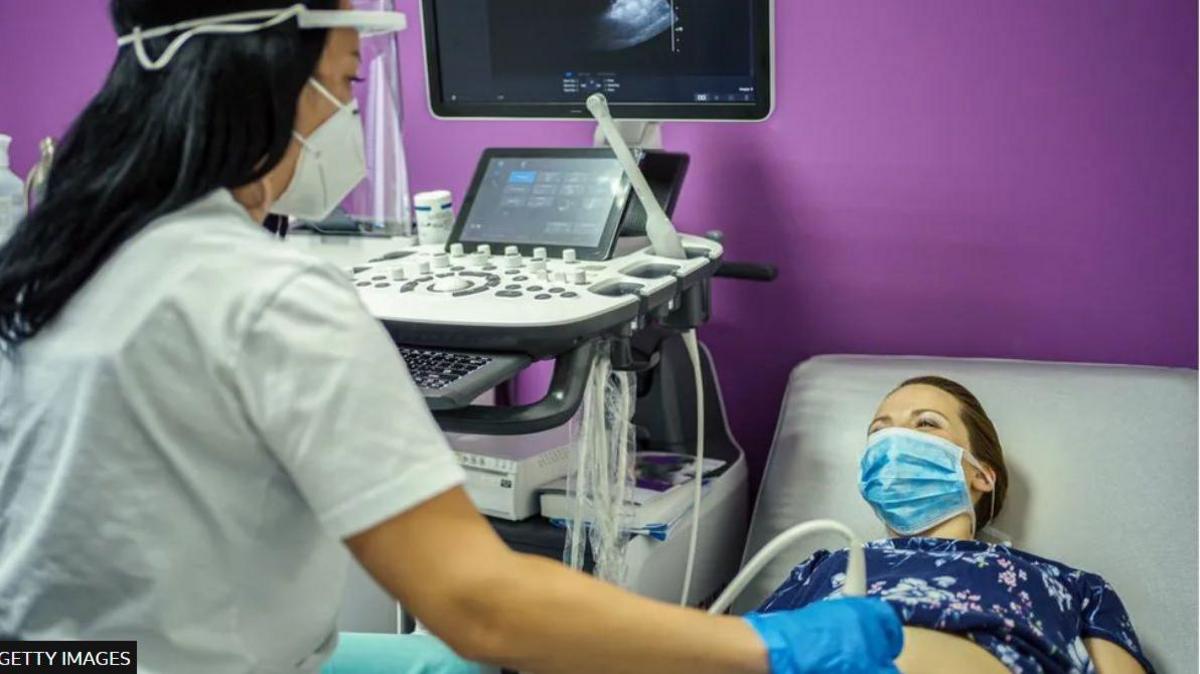
During stages of the pandemic, many pregnant women had to attend scans and give birth alone, as their partners were not allowed to visit
She described the different phases of restrictions, following the full lockdown in March 2020.
"It became far more nuanced and far more permissive as we heard more voices around the impact and issues - folk who may have dementia or other cognitive learning, the importance of people who might need an interpreter," she said.
"There were lots of folk who might need to accompany a patient in any part of their hospital journey."
But she reminded the inquiry of the "tremendous amount of fear" around Covid, especially concerning infections that staff and others might bring in to hospitals.
"The role I played in visiting is the thing that's stayed with me the most out of all my experiences," said Prof White.
"I was acutely aware that stopping loved ones being together, stopping a father seeing the first blip of life in an ante-natal scan - you don't get that back again.
"It's the thing I reflected on the most. Always it was a balance between what staff felt they could manage with, in the environments they were working in, given the lack of vaccinations in whole of 2020.
"Did we get balance right? I'm not sure we did."
Concerns about PPE
Prof White was responsible for executive nursing directors across Wales' health boards.
During the pandemic, she also jointly chaired the Nosocomial Transmission Group (NTG), trying to stop infections spreading within hospital and patients and staff catching Covid while in hospital.
As chief nursing officer, she became aware of an issue in early April 2020 that FF3P face masks used in critical care were not fully waterproof, so staff resorted to double masking.
Her role was to feed back such issues to those in charge of PPE procurement and supply, to get action.
"We had a lot of stock but often the issue was around distribution," Prof White told the inquiry.
"People on the front line were not necessarily receiving it. We did not run out of stock, we had everything but it was not necessarily in the right place."
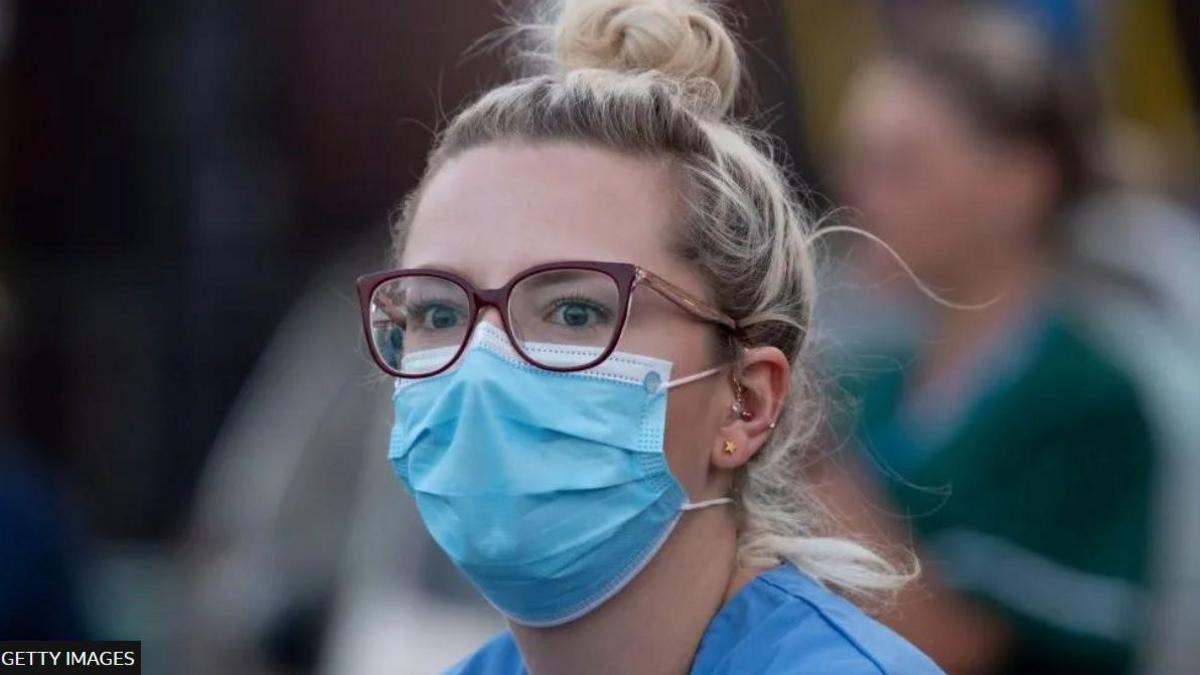
Prof White told the inquiry that there was an issue with face masks in early April 2020
Mask straps were also perishing, with one of the nurse directors noting in 2020 that up to 50% of the FF3P masks were failing to fit properly.
"A lot of it was not suitable for the staff," said Prof White.
"They couldn't fit them tightly to the face so they could have a good seal.
"When we're coming on to recommendations, we need to think about having masks which fit different shapes of face. There's a lot of things around fit that need to be looked at."
She added this should include provisions for staff with beards and specific needs of ethnic minorities, for example.
Prof White also spoke about the staff pressures in critical care, which normally had a one-to one staff-to-patient ratio.
This went to one member of staff for two patients and to one member of staff for three patients only in extreme circumstances, but there was resistance to the suggestion of moving to one member of staff for six patients.
"There was never a moment when not a bed was available... but it might be in the next health board area," said Prof White.
Under questioning about possible delays in setting up infection surveillance, she admitted a mixed picture in the speed of response.
"Some was slower than we'd ideally like because we had to establish systems," she said.
Prof White's counterparts in England and Scotland also gave evidence today.
- Published5 July 2021
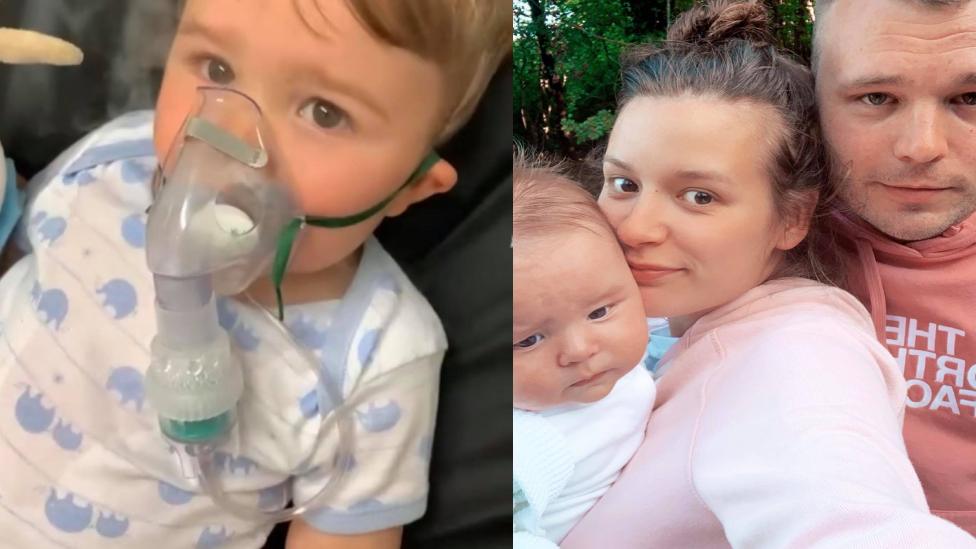
- Published2 May 2021
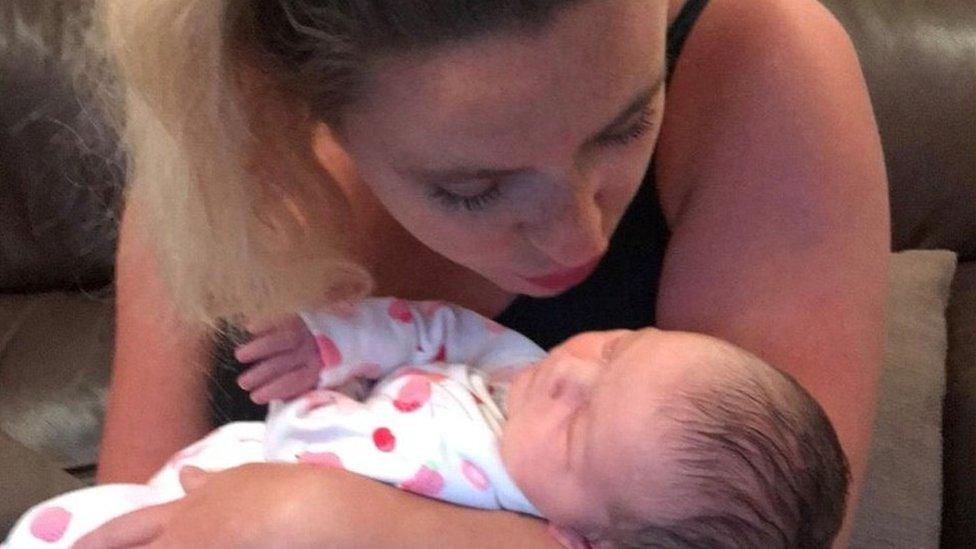
- Published30 November 2020
